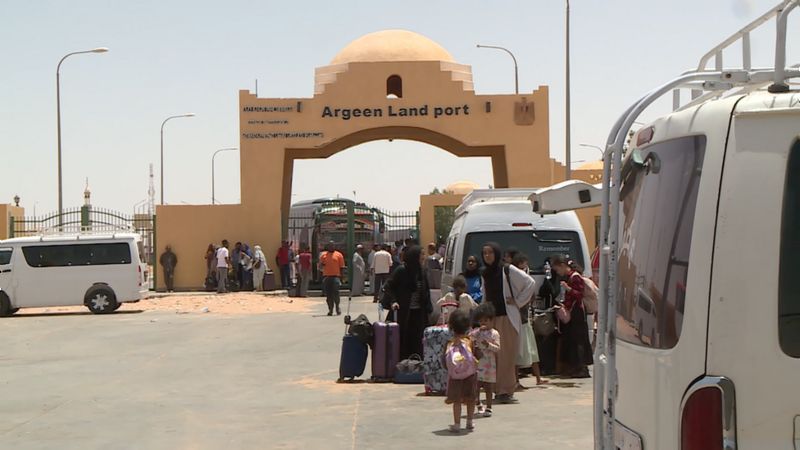
Sudanese in Egypt: Hosting Burden and International Responsibility
Moatinoom
Despite the exceptional circumstances in Cairo, where tens of thousands of survivors from the ongoing war in Khartoum have sought refuge in Egypt, the closest northern neighbor to Sudan with numerous historical relations, social interconnections, and shared interests, the Egyptian authorities treatment of Sudanese citizens fleeing the war in the capital Khartoum has been unexpectedly shocking. This has led to a backlog of stranded individuals at border crossings and border towns, cut off from their families and lacking economic support and humanitarian assistance. They have been unable to meet the conditions for obtaining entry visas to Egyptian territory due to the complex changes in immigration restrictions and the Egyptian sides abandonment or obstruction of parts of the Four Freedoms Agreement. This has compounded the difficulties faced by Sudanese citizens in reaching Egyptian territory as asylum seekers this time, including individuals of various age groups, men, and women who have encountered the cancellation of all facilitative exceptions for obtaining entry visas.
Preliminary statistics revealed that the number of Sudanese who arrived in Egypt after the start of the war on April 15th reached approximately 200,000 Sudanese migrants in the past three months. Only about 3% of them maintain contact with the UNHCR, which announced in February that Egypt hosts over 290,000 officially registered refugees of various nationalities. The reason Sudanese refugees fleeing the horrors of war have refrained from approaching the UNHCR is the difficulty of obtaining refugee status, as the Egyptian authorities have not recognized this designation from the beginning. Sudanese individuals coming to Egypt have been categorized differently from refugees.
Reducing the granted residency period for arrivals after the beginning of June 2023 from six months to only three months and suspending the multiple entry visa system have introduced new considerations, including the lack of relative stability that allows for arranging living conditions for families who have not yet recovered from the shocks resulting from the war situation.
While Sudanese people believe they are one of the best nations in terms of solidarity with other people in times of disasters and wars, the current crisis calls for a reassessment of official relations with neighboring countries, including those that Sudanese citizens have sought refuge in.
The Egyptian authorities revealed that the number of foreigners permanently residing in Egypt before the war in Sudan was about nine million, the majority of whom are from Syria, Libya, Yemen, Iraq, Sudan, and other African countries.
According to the British Broadcasting Corporation (BBC), Egypt warned in May of the continued influx of refugees if the current conflict in Sudan persists, which may impose pressure on the country amid its ongoing economic crisis.
The delay of the UNHCR in granting refugee status to asylum seekers is another reason why Sudanese citizens fleeing the horrors of war have taken it upon themselves to arrange their living conditions under exceptional circumstances and face the burdens of the Egyptian economic crisis. However, this situation is forced upon them. This has had an impact on their living standards and access to non-free services, which come with significant financial costs.
Amidst all this, basic needs become scarce, job opportunities are limited, savings continue to dwindle, while prices steadily rise, and the exploitation of vulnerabilities is prevalent. In addition to concerns about the ongoing war with an uncertain duration, there are other pressures resulting from the dispersion of family members and the absence of any support for special cases, the elderly, women, and children. Furthermore, the host country views the influx of arrivals into Egypt as an economic and security burden that may be accompanied by political factors as well.
Therefore, it is urgent to draw the attention of the international community to provide the minimum guarantees for a dignified life for Sudanese citizens, both within their homeland and in neighboring countries, and to work towards providing temporary protection and relief until the crisis subsides, the war ceases, and security is restored in Sudan. It is a proactive contribution to a situation where they are considered a people without a savior.

